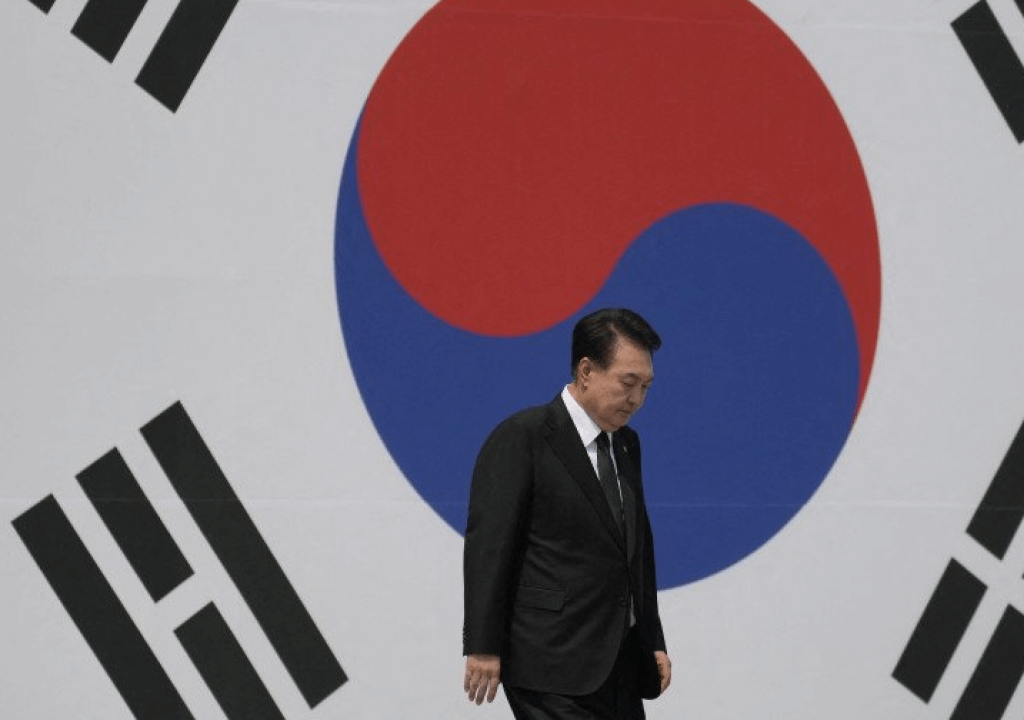The dramatic! That is the perfect word to describe what happened in South Korea yesterday—a confusing political drama that surpasses even the best Korean dramas. The so-called ‘evil president’ seized power, orchestrating a coup under the guise of military law. He executed his plan with precision.
To restore democracy, parliament needed to convene, and opposition lawmakers had to pass a resolution. Security forces sealed off the National Assembly, helicopters landed on its roof, and troops briefly entered the building, seemingly to prevent lawmakers from gathering. However, despite numerous clashes and overcoming significant barriers, 190 lawmakers managed to enter the assembly. They voted unanimously to reject Yoon’s declaration and demanded that martial law be lifted.
What a story! Thrilling, awe-inspiring, and, with a satisfying “The End”. But it wasn’t as smooth as it sounds when it actually happened.
South Korea, officially known as the Republic of Korea, distinguishes itself from North Korea, the People’s Democratic Republic, through its commitment to democracy. South Koreans take pride in being both a republic and a democracy. Although South Korea has been a republic since 1948, it only emerged as a stable democracy with the inauguration of Roh Tae-woo in 1988, after 40 years of military rule. Before this shift, South Korea’s democracy closely resembled the flawed systems seen in many other Asian countries. Millennials and younger generations, who never experienced this authoritarian era, have only known a stable democratic society. Yet, events under Yoon’s leadership have brought back an uncanny echo of the 1980s, offering them a glimpse of a past they never lived through.
President Yoon Suk Yeol declared martial law on Tuesday night, accusing the opposition of being forces that threaten the country’s democracy, a common tactic used by authoritarian regimes to consolidate power. Following his dramatic television address, a six-point decree from the new martial law commander, Army Chief Gen. Park An-su, was issued. The decree banned political activities and parties, prohibited “False Propaganda,” and banned strikes and gatherings that could incite social unrest. The decree also placed all media outlets under martial law authority and ordered all medical staff, including striking doctors, to return to work within 48 hours. Yoon stated he was acting to protect the country’s liberal democracy from threats by anti-state elements and North Korea, though he provided little detail.
The declaration was immediately condemned by both the opposition and the leader of Yoon’s own party. The leader of Yoon’s conservative People Power Party called the decision to impose martial law a mistake. Lee Jae-myung, the opposition leader who narrowly lost to Yoon in the 2022 presidential election, described the announcement as illegal and unconstitutional. South Korea’s main opposition party, led by Lee, denounced the move as essentially a coup d’état. Six hours later, Yoon backed down, or was forced to back down, lifting the order in the face of united opposition. After six hours of declaring martial law at 4:30AM, Yoon announced that troops would return to their barracks, and the order would be lifted following a cabinet meeting.
What is the real cause behind Yoon’s actions? So far, his statements have reflected typical authoritarian rhetoric. He faced backlash in the recent parliamentary elections, where the opposition party gained a majority. It seems that he did not expect or accept this outcome, and the growing divide between him and parliament created significant tension. The announcement of martial law likely stemmed from these differences, along with a deepening budget dispute between Yoon and the opposition Democratic Party. This struggle led to widespread public disapproval and followed a dramatic drop in Yoon’s approval rating to 19% in the latest Gallup poll, with significant dissatisfaction over his handling of the economy and ongoing controversies involving his wife, Kim Keon-hee. This explanation seems more plausible than the false claims he made.
It’s only a matter of time before Yoon steps down, as public opposition intensifies. Recent reports indicate that opposition parties have initiated impeachment proceedings in parliament, and even if Yoon’s own conservative People Power Party were to stand by him, they lack the numbers in the legislature. His dramatic actions have likely set the stage for his eventual downfall.
What can happen in a single night? South Koreans woke up to find the country had plunged into martial law, resembling a coup, only to return to normal by morning—a stunning turn of events. What a night it was.








